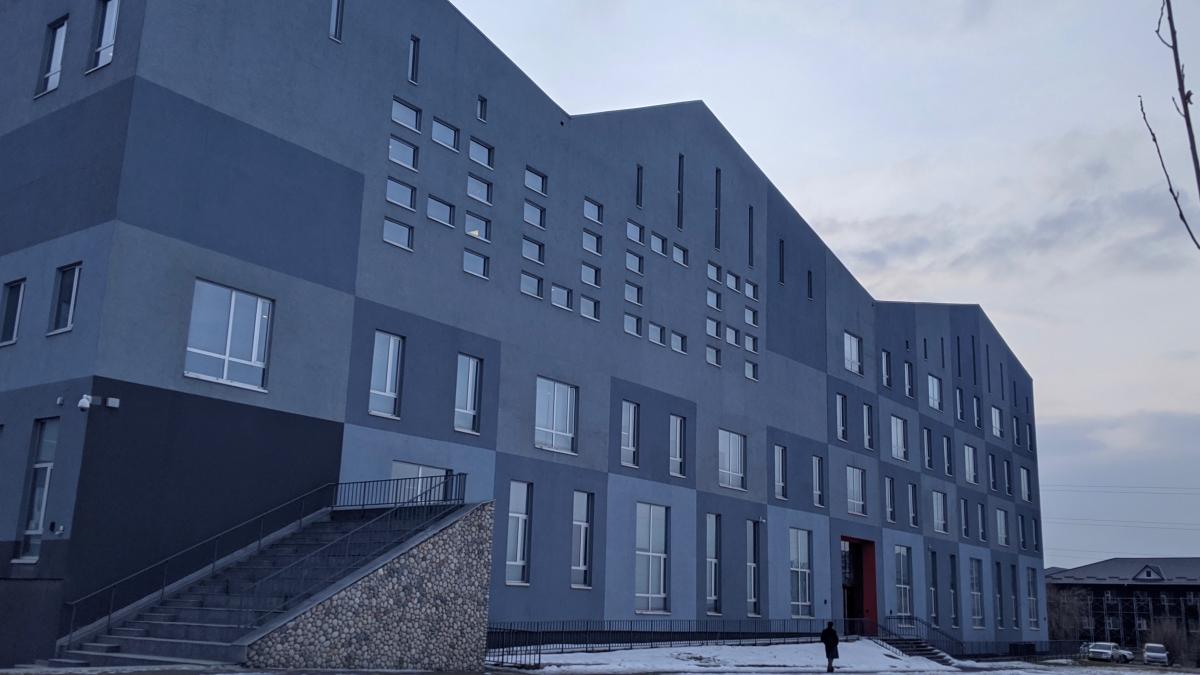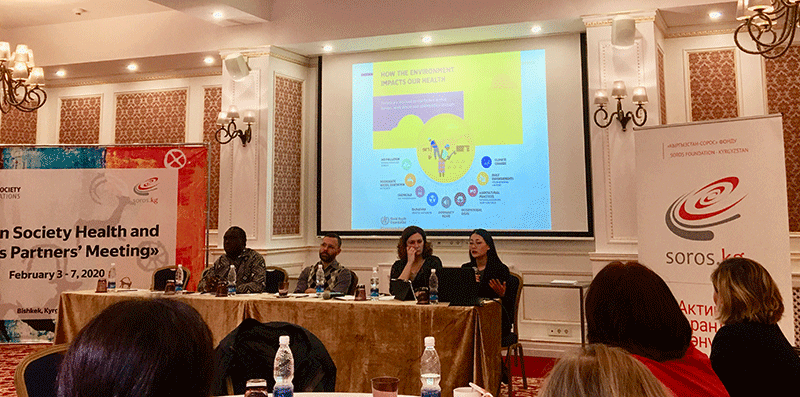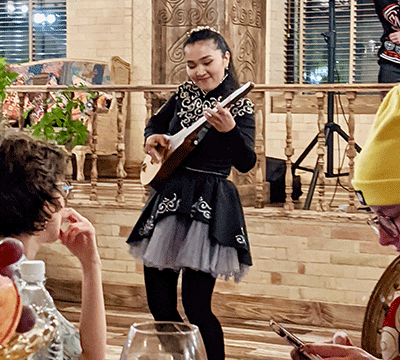
Photo courtesy of Esther Min.
Min was invited to present about how digital power can be used to identify climate vulnerability.
How, in the name of science, does Esther Min, a graduate student in the University of Washington Department of Environmental and Occupational Health Sciences (DEOHS), end up at a six-hour-long dinner in Bishkek, Kyrgyzstan with members of George Soros' Open Society Foundation?
Min helped develop the Washington Health Disparities Map under the supervision of EDGE member, Dr. Edmund Seto. The

Washington Health Disparities Map is a publicly-accessible interactive online mapping tool that can be used to compare communities across the state on a range of measures related to environmental health.
Min was invited to present at the Open Society Foundation meeting by a Kyrgystan native named Chinara Sultanalieva who had visited DEOHS on a summer tour hosted by the EDGE Center. At the time Sultanalieva was a fellow in the Community Solutions Program sponsored by the U.S. State Department and hosted by Zero Waste Washington.
Once back in Kyrgyzstan, Sultanalieva reached out to EDGE to inquire whether Min could present to the Soros Foundation about the Washington Health Disparities Map at an internal meeting for Foundation program health directors. Foundation staff came from all over the world for the meeting, from New York to South Africa to Armenia.
During the two-day meeting, Min gave a presentation focused on using digital power to identify vulnerability. "We need to know which people are already bearing the burden of climate change to make sure they're included in work to develop adaptation or mitigation strategies," she said. "We don't want to leave anyone behind."

Min presented the Washington Health Disparities map as an example of what can be done when academics work together with government and community. "Everyone can do something at whatever level." Min said, "This is an example of what we can do as a group in 2-3 years with no funding."
While in Kyrgyzstan, Min also presented at the American University in Central Asia, which the Soros Foundation helped to found. There she spoke to students, faculty, non-profit groups and community members about the broader topics of climate change and environmental health. She described the Home Air and Agriculture Pediatric Intervention Trial ("HAPI Project") that she works on with EDGE member, Dr. Catherine Karr, as one example of a community-academic partnership in which research is shared openly.
Min said the best part of the meeting was connecting with other public health practitioners who are thinking about people already impacted by social injustice. "It's great seeing a foundation incorporate environmental justice into their programmatic work. Philanthropic work can fill in the gaps in what governments do."
When asked if anything about the experience surprised her, Min described the warmth and hospitality of her Kyrgyz hosts. "They kept us really well-fed," she said. "One night we had dinner from 5-11 PM." During the dinner, the Kyrgyz hosts shared traditional culture, dances, and music. "It made me think about what we could ever share at the same level in the US," said Min.

